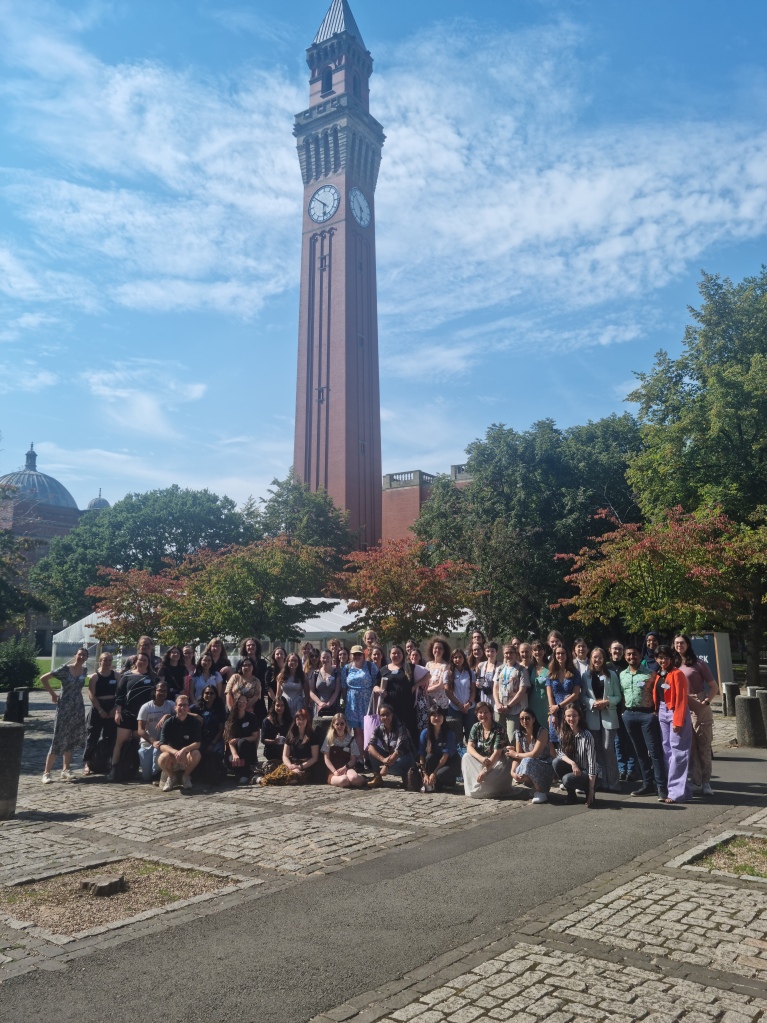This time last year, Katrina Jan, a PGR in the Department of English Literature, took part in the UoB 3MT competition and she shares her experience here. There’s still time to sign up if you’re interested in participating in 2024 – sign up here before 28 March.
Last year, I decided to challenge myself and throw myself to the lions by participating in 3MT. I went through many emotions whilst participating in the competition. From, “What am I doing?!” to “I can’t do this”, and then “Okay, maybe I can sort of do this”, “Oh no, definitely shouldn’t have signed up for this” and “Right, I’m doing this and I’m going to give it my best shot” and I’m so very glad I did.
The 3MT contest was a journey and a challenging one for me, especially with all my other commitments. I had just started a new research project on top of my current job at the University and alongside my role as a University Graduate School scholar, as well as the PhD itself and all my other extracurriculars, to say I was busy would be an understatement. To top it off I was battling a cold and a mouth ulcer by the time the 3MT practice heats had started, I was not feeling my best and barely had time to prepare.
My first practice was not great, and I would probably go as far as to say that was probably one of the worst presentations I’ve given. A painful mouth ulcer and a stuttering performance with a judging panel staring at me, were not what I envisioned when I first signed up. However, the feedback I received from the judges was encouraging yet critical and helped spur me on for my next heat.
By the time my next practice heat came, I was cured, and had a little more rehearsal but by no means had I put enough time into it as I would have liked. Except I realised the night before, that this was in fact NOT A PRACTICE. It was the elimination stage. I wasn’t even off-script and although I was not ill this time, I was ill-prepared.
How I managed to get off-script for the next day is beyond me. I’m dyslexic and therefore my short-term memory is not great, so forgetting words is my speciality. However, my BA is in Drama and English, and my background prior was in Theatre and Performance, and whilst it had been nearly a decade since I had done a show, I tried to think of this as a performance.
I wrote my 3MT speech like a script and took out any jargon.
- So, it would be easy to remember
- A non-specialist audience could grasp what I was saying
- See first point
This time I would be presenting at the 3MT Heats mouth-ulcer-free but sleep deprived. Nervous? Most definitely! The nice part? So is everyone else. The other contestants (although far less clumsy and more prepared than I) were so lovely and encouraging, that not for a second did I feel like we were competing against each other. Everyone gave genuinely positive feedback and the advice I was given from another contestant was:
- Practise
- Practise
- Practise
Once I had (by some miracle) got through to the Final, that’s exactly what I did.
I practised with the other contestants, PhD colleagues, to random undergraduates who wouldn’t leave the lecture hall and to the security guard who tried to kick me out of the lecture hall, and this made a huge difference to the way I presented. I didn’t expect to be runner-up against such brilliant contestants (some even became close friends), but if I somehow managed to pull this off, so can you.

